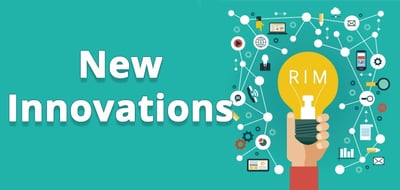Nothing lasts forever, and in the digital marketing world, strategy and techniques change quickly. This is especially true as technology develops and marketers create new innovations for applying it to their strategy.
These are some of the top trends and technologies marketers are implementing this year. 
- Augmented And Virtual Reality
Remember the nearly overnight success of Pokemon Go a year ago? This use of augmented reality created an experience for gamers both on their phones and out in the real world. The use of virtual and augmented reality is on the rise for marketers, as they experiment with how to best use it. VR/AR can be used to demonstrate a product or to create a branded entertainment experience. There’s an opportunity for marketers to add value for their audiences through this technology, and it’s worth trying out.
- Topic Clusters
As more and more content is published, standing out to your target audience has become increasingly challenging. Add in Google’s love of constantly tweaking its algorithm, and it becomes quite clear why your old strategy might not be working so well anymore. The use of topic clusters is one of the emerging new innovations in content marketing, that will impact your future SEO and content strategy.
[DOWNLOOAD]![[ Free Download ] Need to know the basics and how to get started on creating a blog? I have you covered!](https://no-cache.hubspot.com/cta/default/389011/0ce6cf31-3676-4581-b45d-abea436673bc.png)
A topic cluster is essentially a piece of pillar (or main) content connected to a related piece of cluster content, or subtopic, by a link. This creates a relationship between the pages, and allows search engines to see the connection. Google will keep updating, and you need to stay on top of these updates so you can adjust your content strategy accordingly.
3. Internet Of Things (IoT)
There are expected to be 75 billion connected devices by 2020, reports Smart Insights. All of these devices will change how people live their lives, and provide new data. Wearables, such as Apple Watch and FitBit, generate data about the people wearing and using them. The challenge for marketers will be how to best make use of the data and provide highly customized experiences for customers.
IoT can also be used now to connect products. Think of the Nest Thermostat that learns a user’s preferences and then adjusts itself accordingly. The potential is really endless.
- Big Data
In a digital world, the amount of information available to marketers has increased, allowing for greater data-driven decision making. Big data can be used to gain insight into your specific market, as well as about your customers. It’s also being used for predictive analytics.
“Concerning marketing, this trend is already helping marketers create more transparent attribution models, get a clear view of campaigns ROI, and run predictive analysis to cluster users and customers based on emerging behavioral patterns,” writes KPI6 on Medium.
Big data allows you to see patterns and insights in a way that just isn’t possible with smaller data sets. You can determine exactly when you should do something, such as exactly when a customer should be sent a certain content piece or offer, based on the information you have obtained about them. Access to this data and analytics in real-time means you can adjust your strategy as needed; you don’t need to wait for months on end to see whether or not something is working.
- Messaging Apps
Messaging apps such as WhatsApp, Facebook Messenger, and WeChat are changing how people communicate, which is no surprise considering the rise in use of smartphones. Users who contact brands through social media expect a response fast, and messaging apps provide a platform to do so. According to research by Desk.com, more than 22% of millennials expect a response within 10 minutes of reaching out to a consumer brand. Apps can also be used to make purchases directly and get product questions answered, all in one platform.
Using chatbots along with messaging apps can provide a solution for companies because they don’t require a person to be on the other side of the chat, but can still offer the same service options.
- Artificial Intelligence
Artificial Intelligence is a computer system that is able to perform tasks that would usually be done by a person, and is already becoming a more common part of daily life with Amazon’s Alexa, Google Home, and even Apple’s Siri, and will impact the future of the workplace as well. It’s also starting to change how people make purchases and conduct research. They can just as Alexa to order something or for a recommendation.
As AI becomes more commonplace, marketers will have to adjust their approach to view it as an asset instead of a roadblock. It is one of the new innovations that can help you to provide the unique experience for each individual customer that they are expecting. It can optimize interactions and automate in real-time during the interaction and respond to customer inquiries more quickly and easily. Now’s the time to start thinking about how to implement AI into your marketing strategy.
Is this too much for you to think about? See if hiring an agency to do the thinking over an in-house marketer works better for you.
